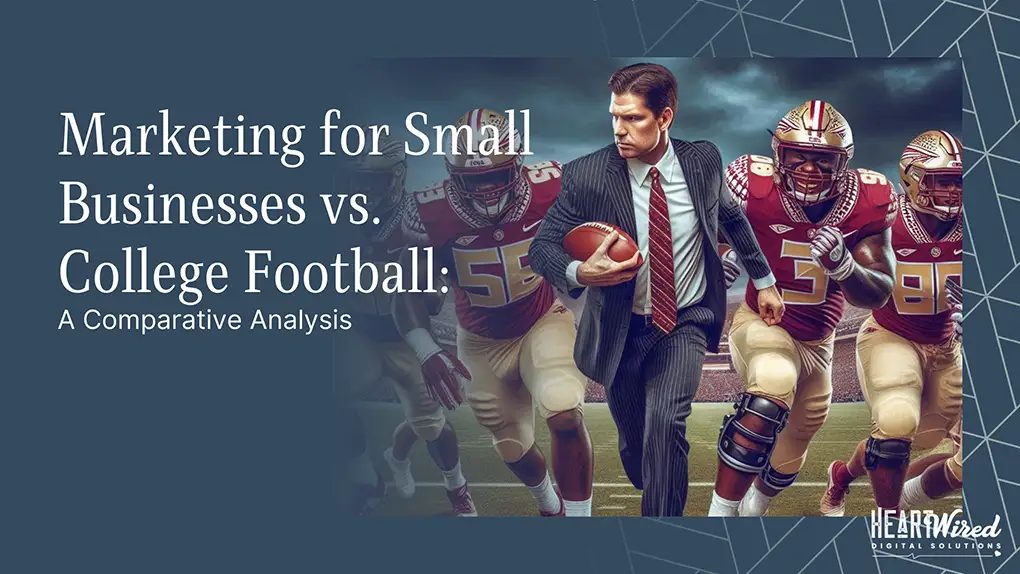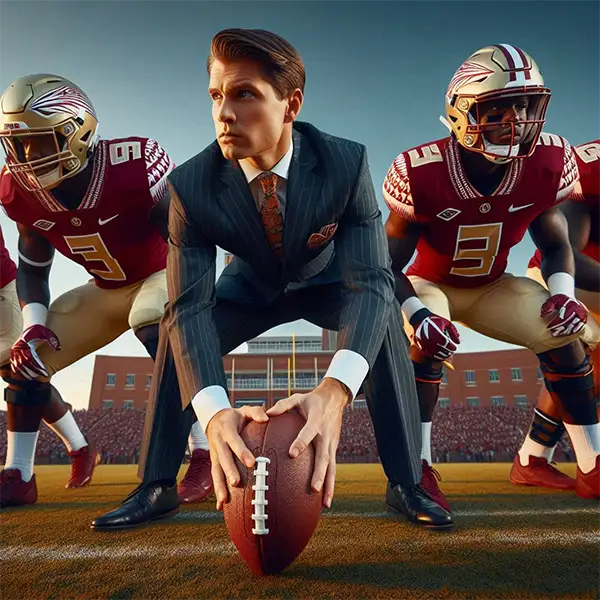
Marketing for small businesses and college football may seem worlds apart, but they share surprising similarities in strategy, execution, and goals. Both require a deep understanding of the target audience, a strategic approach to engagement, and the ability to adapt to changing circumstances. This blog post explores these parallels and highlights the lessons small businesses can learn from college football marketing.
Understanding the Audience
In both small business marketing and college football, understanding your audience is crucial.
Small Business Marketing: Small businesses must identify their target market to tailor their products, services, and marketing messages effectively. This involves market research, customer feedback, and data analysis to understand customer needs, preferences, and behaviors.
College Football: Similarly, college football programs need to understand their fan base. This includes students, alumni, local community members, and sports enthusiasts. By understanding what drives fan engagement, whether it’s team loyalty, school spirit, or the love of the game, marketing strategies can be tailored to enhance the fan experience.
Building a Brand
Branding is at the heart of both small business marketing and college football.
Small Business Marketing: A strong brand differentiates a small business from its competitors and creates a memorable impression on customers. This involves creating a consistent brand message, visual identity, and customer experience that reflects the business’s values and mission.
College Football: College football teams also rely heavily on branding. The team logo, colors, mascot, and traditions all contribute to a unique brand identity that fosters team loyalty and school pride. Successful branding can turn casual fans into lifelong supporters.
Engagement and Community Building
Both small businesses and college football programs focus on engagement and community building to foster loyalty and support.
Small Business Marketing: Engagement strategies for small businesses include social media interaction, community events, and loyalty programs. These efforts aim to create a sense of community around the brand, encouraging repeat business and word-of-mouth referrals.
College Football: College football programs engage their community through game day experiences, alumni events, and social media campaigns. By creating a vibrant community around the team, they enhance fan loyalty and support, which can translate into increased ticket sales and merchandise revenue.
Adapting to Change
Adaptability is essential in both small business marketing and college football.
Small Business Marketing: Small businesses must be agile to respond to market changes, customer feedback, and emerging trends. This may involve adjusting marketing strategies, launching new products, or exploring new distribution channels.
College Football: College football programs also face changing dynamics, such as shifts in fan preferences, regulatory changes, and technological advancements. Adapting to these changes is crucial for maintaining fan engagement and program success.
Leveraging Technology
Technology plays a significant role in the marketing strategies of both small businesses and college football.
Small Business Marketing: Digital marketing tools such as social media, email marketing, and search engine optimization (SEO) are essential for reaching and engaging customers. These tools allow small businesses to compete with larger companies by targeting specific audiences and measuring campaign effectiveness.
College Football: College football programs use technology to enhance the fan experience, from mobile apps for ticket purchases and game updates to virtual reality experiences and social media engagement. Technology also plays a role in performance analysis and player recruitment.
Measuring Success
Both small businesses and college football programs need to measure the success of their marketing efforts to ensure they are achieving their goals.
Small Business Marketing: Key performance indicators (KPIs) such as sales growth, customer retention, and brand awareness are used to evaluate marketing effectiveness. Data analytics tools help businesses track these metrics and make informed decisions.
College Football: Success for college football programs is measured not only by wins and losses but also by fan engagement, ticket sales, and brand visibility. Metrics such as social media engagement, merchandise sales, and alumni donations provide insights into the effectiveness of marketing strategies.
Conclusion
While small business marketing and college football may operate in different arenas, they share common strategies and goals. Both require a deep understanding of the audience, a strong brand identity, and a focus on engagement and adaptability. By examining the parallels between these two fields, small businesses can gain valuable insights into building successful marketing strategies that resonate with their target audience and drive growth.
